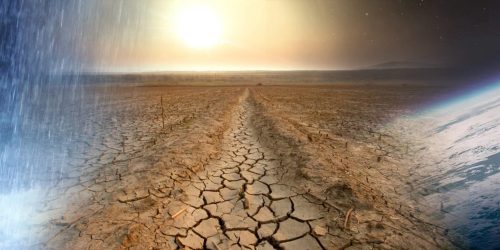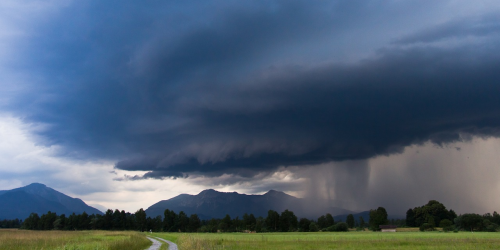Federal Agency Name(s): Office of Oceanic and Atmospheric Research (OAR), National Oceanic and Atmospheric Administration (NOAA), Department of Commerce (DOC)
Notice of Funding Opportunity Title: Climate Program Office (CPO), Earth System Science and Modeling Research in support of the Disaster Relief Supplemental Act (DRSA)
Announcement Type: Initial
Notice of Funding Opportunity Number: NOAA-OAR-CPO-2023-2007562
Catalog of Federal Domestic Assistance (CFDA) Number: 11.431, Climate and Atmospheric Research
NOFO at a Glance
General Information
As part of the National Oceanic and Atmospheric Administration (NOAA) climate portfolio within the Office of Oceanic and Atmospheric Research (OAR), Climate Program Office (CPO), the Earth System Science and Modeling (ESSM) Division programs address climate challenges by managing competitive research programs that support high-priority science initiatives. CPO/ESSM Programs advance our understanding of the Earth’s climate system and foster the application and use of this knowledge to improve the resilience of our Nation and its partners.
CPO ESSM programs, Climate Observations and Monitoring (COM) and Climate Variability and Predictability (CVP) are seeking applications for two individual competitions through this announcement. These competitions solicit projects in response to the DISASTER RELIEF SUPPLEMENTAL APPROPRIATIONS ACT (DRSA), 2022:“Improvements to … precipitation and flood prediction, forecasting, and mitigation capabilities…” that align with the goals of NOAA’s Precipitation Prediction Grand Challenge Strategy 2020-2030 (PPGC). NOAA’s PPGC initiative is aimed at providing more accurate, reliable, and timely precipitation forecasts across timescales from weather to subseasonal-to-seasonal (S2S) to seasonal-to-decadal (S2D) through the development and application of a fully coupled Earth system prediction model.
This information, along with the names and contact information for each Competition Manager, is provided in the notice of funding opportunity.
In FY23, approximately $2.3 million will be available for approximately 5 new awards pending budget appropriations (see section I.B above). It is anticipated that most awards will be at a funding level between $125,000 and $250,000 per year with exceptions for larger awards, unless otherwise noted below. Current or previous grantees are eligible to apply for a new award that builds on, but does not replicate, activities covered in existing or previous awards. Current grantees should not apply for supplementary funding through this announcement.
CPO’s grant programs manage a competitive process through a NOFO announcement to make awards supporting high-quality research conducted across the United States and internationally on the most urgent climate science questions. While each program area has its own focus, together they advance understanding of Earth’s climate system through interdisciplinary, integrated scientific research, and leverage the resulting knowledge, data, and systems to enhance society’s ability to plan and respond to climate variability and climate change. Toward this end, CPO also supports partnerships that build end-to-end pipelines of information (e.g., integrated information systems) flowing from scientists to decision-makers.
Links to Full NOFO and Grants.gov Listing
Important Dates/Deadlines
Full Applications
Full applications must be received by 5:00 p.m. Eastern Time, Jan 26, 2023.
Applications received after these dates and times will not be considered for funding.
Applications must be submitted via http://www.grants.gov. For applications submitted through grants.gov, the basis for determining timeliness is the receipt notice issued by www.grants.gov, which includes the date and time received.
Applicants without internet access
Please contact the CPO Grants Manager Diane Brown by mail at NOAA Climate Program Office (R/CP1), SSMC3, Room 12734, 1315 East-West Highway, Silver Spring, MD 20910 to obtain an application package. Please allow two weeks after receipt for a response. Hard copy submissions will be date and time stamped when they are received in the Climate Program Office.
Emailed or faxed copies of applications will not be accepted.
For Federal Investigators
Federal employees who wish to engage in this Announcement of Opportunity must collaborate as unfunded collaborators. Funding is not available for Federal investigators through this announcement. All proposals must be submitted by institutions or other organizations through http://www.grants.gov following the instructions in the NOFO. No applications will be accepted via email.
Full applications must be received by 5:00 p.m. Eastern Time, Jan 26, 2023.
Where to Submit
Application packages:
Visit Grants.gov and click on Apply for Grants. You may also directly view the Grants.gov listing here.
Notice of Funding Opportunity Number:
Applicants without Internet access:
Please send mail to:
Diane Brown
CPO Grants Manager
NOAA Climate Program Office (R/CP1), SSMC3, Room 12734
1315 East-West Highway
Silver Spring, MD 20910
Please allow two weeks after receipt for a response.
Questions/Who to Contact
Diane Brown, CPO Grants Manager
List of Competitions
NOAA is accepting individual applications for 2 competitions.
2: CVP – Identify and understand key land-atmosphere processes that influence coupled-model precipitation biases in the continental United States
The Climate Variability and Predictability (CVP) program supports advances in the development and application of Earth system models and analyses across NOAA for the purpose of building resilience to climate impacts, predicting and projecting change from years to decades in the future, and improving our understanding of and ability to simulate the Earth system.
In this FY23 DRSA NOFO, CVP is soliciting targeted proposals for the following competition: Identify and understand key land-atmosphere processes that influence coupled-model precipitation biases in the continental United States. CVP seeks to improve understanding of physical and dynamic mechanisms over land and their associated changes in extreme weather in the continental United States (CONUS) now and in a changing climate. Through this competition, an expected outcome is to close the gap between models and observations by using existing observations in a coupled model framework to explore the following priority processes: orographic processes, processes important for land-air interactions (e.g., the land-atmosphere transition zone such as upper soil, vegetation, and atmospheric boundary layer),and other land-atmosphere processes, local and/or remote, that influence extreme precipitation events. Common phenomena that affect CONSUS events are tropical storms, extratropical cyclones, atmospheric rivers, and mesoscale convective systems (MCS).
The CVP Program is interested in a process-based approach to identifying and understanding key land-surface processes, land-atmosphere interactions that influence biases and systematic errors in the simulation of CONUS precipitation at the S2S timescales through data analysis, and global or regional modeling experiments. This includes examining how these processes impact/cause model biases and how model biases can be reduced by different approaches. Experimental approaches include but are not limited to: studies of increased model resolution in a coupled model framework, using observations to improve physical parameterizations of unresolved processes, and/or developing new knowledge or theories about processes and multiscale process interactions.
Projects that are most appropriate for the call generally fall in or near the “basic research” or “applied research” levels of technical maturity, i.e., Readiness Levels (RLs) of 1 or 2 RL during the duration of the project. (See details on the NAO 216-105B Policy on Research and Development Transitions).
Collaborations and partnerships with NOAA laboratories, cooperative institutes, and centers are encouraged but not required. Additionally, the use of NOAA models (SPEAR, S-SHiELD, X-SHiELD, UFS, and others) is encouraged but not required. If appropriate, use of observations from NOAA-funded field campaigns and modeling projects is encouraged but not required.
The outcome of this competition is to identify and understand where improvements to precipitation prediction can be made. Precipitation prediction supports better forecasting and leads to mitigation of severe impacts of precipitation events. These projects will support the goal of getting NOAA to a future in which it delivers a comprehensive suite of precipitation predictions over various timescales and with high fidelity.
1: COM – Research to Improve Precipitation Analysis Datasets
The Climate Observation and Monitoring (COM) Program focuses on supporting work that leverages existing in-situ and remote sensing-based observations to develop value-added datasets, products, and analyses. Primary objectives are to support work that 1) provides usable and useful datasets that further enable monitoring and modeling efforts by research and operational communities; and 2) provides authoritative, long-term datasets and analyses for assessment activities.
In this FY23 DRSA NOFO, COM is soliciting proposals for the following competition: Research to Improve Precipitation Analysis Datasets.
The goals of this competition are to further the use of observations for data assimilation and precipitation prediction. Proposals are invited that integrate precipitation process datasets (including cloud properties and precipitation) and improve current, existing precipitation analysis datasets.
Proposals should articulate how improvements and project outcomes will advance the future use of the dataset for data assimilation, model calibration, validation, and/or performance tuning to reduce the mismatch between observed and modeled precipitation.





